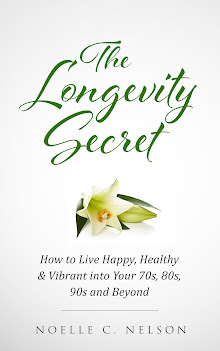No, not “I don’t care about
you” – that would be awful! Just “I don’t care.” By itself. As in “I don’t
care that you left your socks on the floor.” “I don’t care that you
over/under-tipped the server.” “I don’t care that you were five minutes late.”
Because here’s the thing: nothing kills romance faster than
getting bugged about every little thing that’s different about how the two of
you go about life.
Certainly, there are major differences, critical differences,
that must be addressed. If you don’t share a similar outlook about how to
manage your finances, your relationship will suffer. If you don’t share similar
views on sex, or how to raise your kids, or what your future work plans are,
your relationship will suffer. These absolutely need to be discussed, with calm
and good humor and lots of patience. Sometimes with the help of a neutral but knowledgeable
third party.
So her habit of leaving her lingerie wherever she dropped it
used to be titillating. Now it’s aggravating. His habit of forgetting to turn
the lights off when leaving a room used to be unimportant, now it’s a source of
martyred sighs.
But with each expression of negativity, no matter how small,
the love in your relationship erodes. Oh, not much at first, but over time? A
lot. Because as you look upon your Sweetheart’s habits with a critical eye, you
lose respect for him or her. You can’t help it. Criticism eventually breeds
contempt, which in turn demolishes love.
Give your Honey the best gift ever this Valentine’s Day: “I
don’t care.” Not to be said aloud, not even necessarily shared with them, but
“I don’t care” as your thought when you see that lingerie trailing over the
chair, or the lights on when nobody’s home (literally). Make what truly is
unimportant in your couple-life, unimportant. If something is a legitimate
concern, fine, discuss it, find a solution and move on. But if all it is, is a
matter of socks on the floor or stacking dishes differently. . . really? Is
that what will matter when you leave this life?
I doubt it. What will matter are the hugs, the kisses, the
fun you had together, the adventures you experienced together, supporting each
other through tough times, raising the kids—all that. Not who forgot to pick up
the dry cleaning.
Start now. Smile as you pick up those socks, as you patient
out those five minutes he/she is always late, and say to yourself “I don’t
care.” Pull up that list of “Things I love about my Honey” you texted yourself
and read it until it is imprinted on your heart. (Oh, you don’t have such a
list? Time to create it!)
Care enormously—about how much you love your Sweetie, how
much better your life is because of him/her, how much you cherish their love
for you—and let go of what truly doesn’t matter.
“I don’t care!” said joyously is just another way of saying
“I love you.”
Happy Valentine’s Day!






